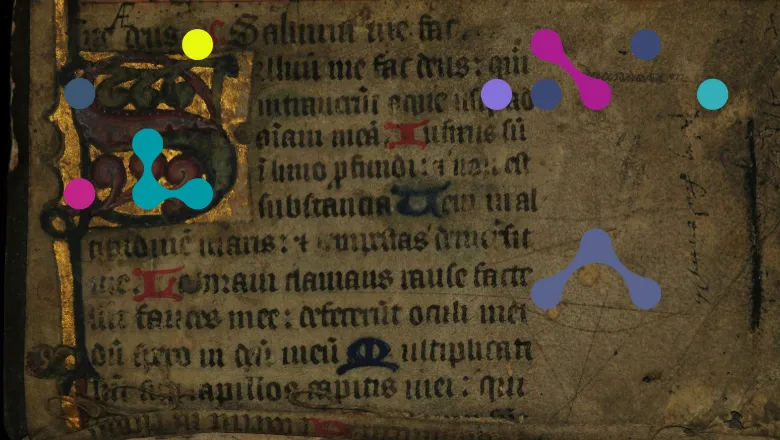Ancient Texts, Modern Tools: How AI Can Transform the Study of Classical Languages
For centuries the study of word meanings in ancient texts has been limited to manual and small-scale analyses, hindering large-scale explorations. Today, artificial intelligence offers a powerful new lens, enabling us to trace how meaning evolved over time with precision and scale previously unimaginable. Understanding these changes helps us better grasp how past societies thought, communicated, and influenced the intellectual traditions that continue to shape the modern world.
This session combines a live talk and demonstration to explore how AI reshapes the study of ancient languages with particular attention to Latin and Ancient Greek. We will focus on how AI can track ‘semantic change’, the process by which words shift in meaning over time, using large language models (LLMs). This technology can help uncover historical nuances in texts, offering fresh insights into classical literature and culture.
You do not need any prior knowledge of AI or classical languages to enjoy this event. It will be of interest to anyone interested in the intersection of technology and the humanities.
Speakers
Andrea Farina is a PhD candidate in Digital Humanities at King’s College London. His research focuses on the syntax-semantics interface and quantitative analyses in ancient languages with a focus on motion events and preverbation. He is committed to advancing open access research and serves as Associate Editor and Social Media Editor for the Journal of Open Humanities Data and creator/convenor of the Data in Historical Linguistics international seminar series.
Valentina Lunardi is a visiting research student in Digital Humanities at King’s College London, where she is honing her knowledge of language technology for the study of linguistic change. She is a PhD candidate in Indo-European Studies at UCLA where her research focuses on computational approaches to semantic changes in Christian Latin. She has taught courses in Linguistics and Classics at UCLA and presented at international conferences on classical and computational philology.
Dr Barbara McGillivray is Lecturer in Digital Humanities and Cultural Computation in the Faculty of Arts & Humanities, King’s College London, where she leads the Computational Humanities research group. Her research focuses on computational methods for the study of language change in both historical languages and contemporary data. She was previously a Turing Research Fellow at The Alan Turing Institute and a language technologist in the Dictionaries division of Oxford University Press, and a data scientist in the Open Research Group of Springer Nature.
King's Festival of Artificial Intelligence
This event is part of the King’s Festival of Artificial Intelligence. Running from Tuesday 20 May to Saturday 24 May, the free, five-day festival brings together a diverse line-up of experts to consider critical questions about artificial intelligence in the context of healthcare, education, sustainability, policy, and creativity.
If you are interested in this event, you may also want to join us for:
- Bletchley Park and AI (online)
- The Digital Futures of Literature
- Magic, Minds, and the Mysteries of AI
- AI Dreams and Sci-Fi Nightmares (online)
Festival events will take place across several King’s venues, so please check carefully where the event is taking place. Festival event times may be subject to change. Any changes will be communicated to attendees via Eventbrite emails.
Please note, King's events are free, which means we routinely overbook to allow for no-shows and avoid empty seats. Admission is on a first come, first served basis, so please arrive in good time to avoid disappointment. We will not be able to admit those without tickets or latecomers.
Search for another event

